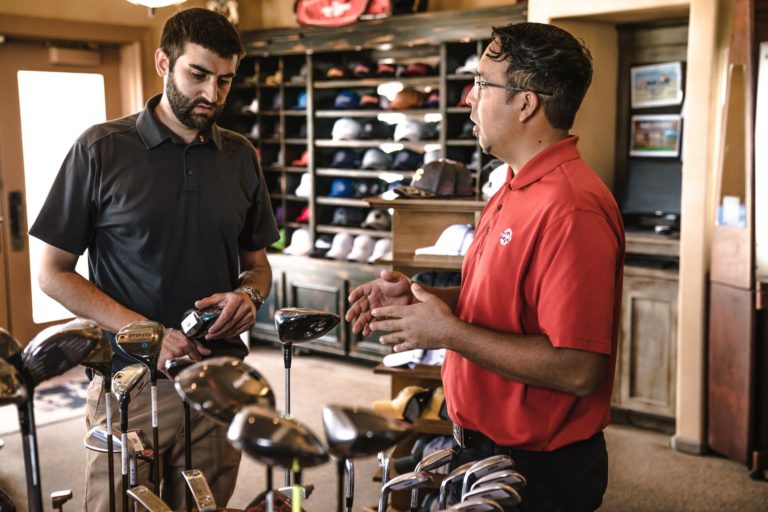You might think this question is purely rhetorical, as there’s an argument to be made that all industries can benefit from mystery shopping. Given that The Brandt Group specializes in mystery shopping, you might also think that we would agree with the sentiment—and you’d be right, of course. But there is nuance to this answer because a better question to ask is which kinds of employees benefit most from mystery shopping? Read on to learn more.
There are two categories of employees who really benefit: salespeople and customer-service representatives. Now, most businesses have public-facing employees who handle customer service in some capacity, so it makes sense to develop people into efficient and courteous ambassadors on behalf of your company. That’s a no-brainer. But what about salespeople? Not all businesses employ salespeople—at least in—perhaps viewing their staff as retail employees. Their duties are generally confined to stocking and ringing up purchases.
However, this distinction can be trivial when you really think about it. After all, aren’t retail employees meant to project a welcoming atmosphere, positivity, helpfulness, and genuine interest in the customer’s experience—thereby selling your brand at all times, so to speak? By that definition, you might say that every employee is a salesperson.
This conceit is not to devalue traditional salespeople, of course: their skillset is far more honed as they’re expected to know the products completely, have strong presentation skills, and to have above-average personability. They’re supposed to upsell and offer add-ons. Expected to follow-up. They’re generally paid better (via commission) and held to a higher standard as a consequence. But there is a common thread, a shared-DNA if you will, between the retail person and the salesperson.
How so? Well, you expect retail employees to have at least a top-level understanding of what your company sells. They’re unlikely to have expertise, especially if your business sells many different products, but you want them to have a foundational knowledge combined with the ability to look up answers are important qualities, right? And you certainly hope their personability is reasonably good, otherwise they’d have a difficult time being good brand ambassadors for your business.
When you really think this through, you might start to realize that retail employees are in fact a kind of salespeople, just on a lower rung of development. As such, perhaps we should treat our retail employees accordingly, making sure they’re well trained, measured, and rewarded for their successes.
Naturally, this is where mystery shopping comes in. Given that retail employees are not often commissioned (or even tracked for their specific sales), mystery shops allow your managers to measure how well each employee is selling your brand experience. This allows you to identify which ones need additional training, and which ones ought to be rewarded in some way for their great work. This is a far more nuanced approach than rewarding a whole store or a specific department for a strong quarter, one which will make employees feel cared for as individuals even beyond just being members of a strong team. We have to recognize people for both.
Designing a comprehensive evaluation for your business, touching upon everything from a store’s appearance to how well each employee handles his or her duties can seem daunting, but that’s why we’re here. Together, we’ll develop an audit that will hit all of the important points necessary to keep your business thriving and growing, even the points you haven’t even thought about yet. Reach out today, and let’s develop all of your employees into the kinds of brand ambassadors required to ensure the ultimate customer experience.




Recent Comments